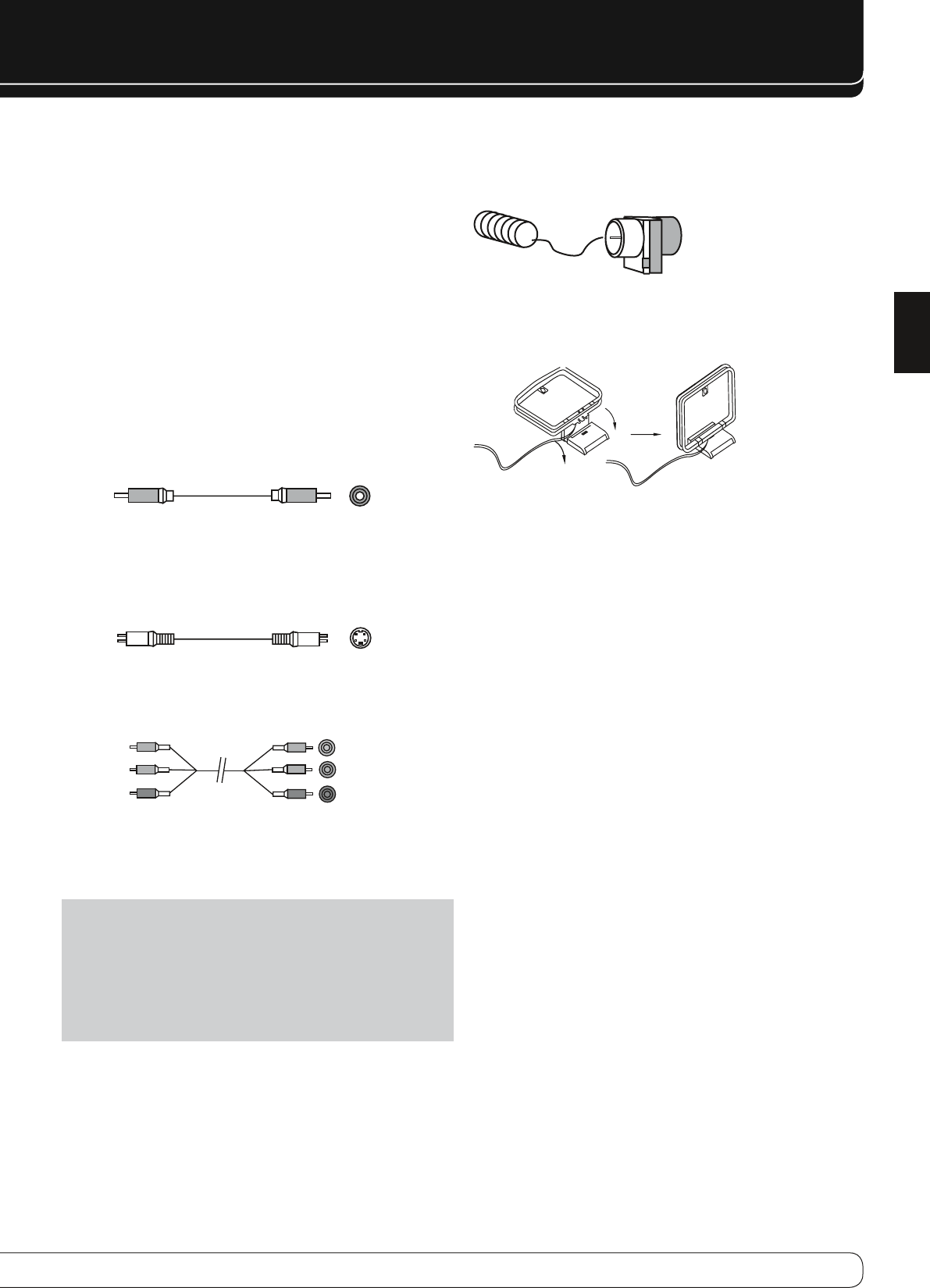
17
ENGLISH
CONNECTIONS
Video Connections
Many sources output both audio and video signals (e.g., Blu-ray Disc or DVD
player, cable television box, HDTV tuner, satellite box, VCR, DVR). In addition
to the audio connection, make one type of video connection for each of these
sources (only one at a time for any source).
Digital Video
If you have already connected a source device to one of the HDMI inputs, you
have automatically made a video connection, as the HDMI signal includes
both digital audio and video components.
Analog Video
There are three types of analog video connections: composite video, S-video
and component video.
Composite video is the basic connection most commonly available. The jack is
usually color-coded yellow, and looks like an analog audio jack. Do not plug
a composite video cable into an analog or coaxial digital audio jack, or vice
versa. Both the chrominance (color) and luminance (intensity) components of
the video signal are transmitted using a single cable. See Figure 10.
Composite
video cable
Figure 10 – Composite Video
S-video, or “separate” video, transmits the chrominance and luminance
components using separate wires contained within a single cable. The plug
on an S-video cable contains four metal pins, plus a plastic guide pin. Align
the plug correctly when you insert it into the jack. See Figure 11.
S-video cable
Figure 11 – S-Video
Component video separates the video signal into three components – one
luminance (“Y”) and two sub-sampled color signals (“Pb” and “Pr”) – that are
transmitted using three separate cables. See Figure 12.
Component
video cable
Y Green
Pb Blue
Pr Red
Figure 12 – Component Video
If it’s available on your video display, an HDMI connection is recommended as
the best quality connection, followed by component video, S-video and then
composite video.
NOTES
:
Copy-protected sources are not available at the Component Video •
Monitor Outputs.
Standard and high-definition analog video signals may be upscaled •
to 1080i resolution for the Component Video Monitor Outputs. For
improved video performance, consider upgrading to an HDMI-capable
video display with 1080p resolution.
ANTENNAS
The AVR 760/AVR 660 uses separate terminals for the included FM and AM
antennas.
The FM antenna uses a 75-ohm F-connector. See Figure 13.
Figure 13 – FM Antenna
The AM loop antenna needs to be assembled. Connect the two leads to the
spring terminals on the receiver. The AM antenna leads have no polarity, and
you may connect them to either terminal. See Figure 14.
Figure 14 – AM Antenna
RS232 SERIAL PORT
The RS-232 serial port may be connected to an external computer or control
device to allow the external device to transmit control commands to the
AVR. The port is bidirectional, so that the AVR can transmit status updates to
the control device. Connecting and using the RS-232 port requires technical
knowledge, and is best left to a professional custom installer.


















